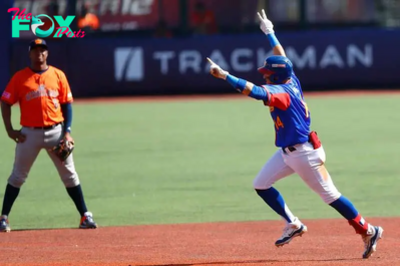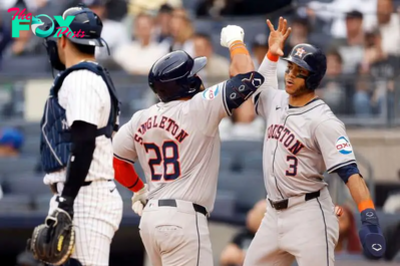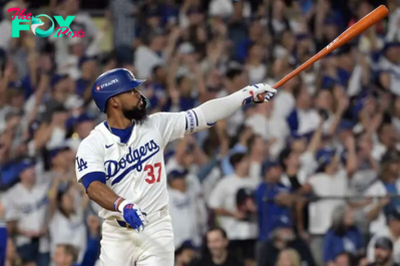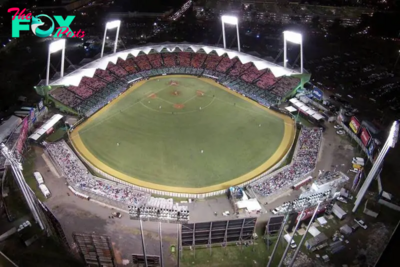MLB
Baseball and September 11, consistency and resilience
On a cool October evening in 2001, Yankee Stadium felt less like a ballpark and more like a cathedral. The stands were packed, not just with fans eager for the first game of the World Series, but with a sense of shared grief, hope, and resilience. The wounds from September 11th were fresh, the ashes of the Twin Towers still lingering in the air like a haunting memory, but there was a determination to move forward. Baseball, in that moment, was more than just a game. It was a bridge, a way for a fractured country to stitch itself back together, at least for a little while.
When President George W. Bush strode to the mound to throw the ceremonial first pitch, the weight of the moment hung heavy. He didn’t need to say anything; his mere presence in the heart of New York City, just blocks away from Ground Zero, said it all. Wearing a bulletproof vest under his jacket, he stood tall, gripped the ball, and with a firm, confident motion, delivered a perfect strike. In that instant, something shifted. The crowd roared, not just in celebration of the pitch but in acknowledgment of what it symbolized. It wasn’t just about baseball anymore - it was about standing up again after being knocked down.
Baseball, after all, has a way of doing that. It’s woven into the fabric of American life, stitched into our national consciousness. It’s there in our victories and defeats, our highs and lows. And on September 11th, 1985, another monumental baseball moment unfolded, though this one was of a different nature. That was the day Pete Rose surpassed Ty Cobb to become the all-time hits leader.
It was a sweltering night in Cincinnati, the kind where the air feels thick enough to cut with a knife, and Riverfront Stadium buzzed with anticipation. Rose, with his familiar crouched stance and unshakable focus, dug into the batter’s box, chasing history. Cobb’s record of 4,191 hits had stood for six decades, seemingly untouchable. But Rose was relentless, the kind of player who embodied the grind of the game: hard-nosed, determined, a little rough around the edges.
When Rose smacked that single off San Diego’s Eric Show, history didn’t just feel like it was being made - it felt like the culmination of a lifetime of grit and hustle. As he stood on first base, the crowd erupted into a frenzy, understanding the significance of what they’d just witnessed. Pete Rose, the player who once famously said, “I’d walk through hell in a gasoline suit to play baseball,” had reached the pinnacle. In that moment, he became the new king of the base hit.
It’s curious how two events, separated by sixteen years, both orbit around the same date: September 11th. One, a milestone for an individual; the other, a nation’s effort to heal. In 1985, Rose’s record-breaking hit was a celebration of achievement, a singular pursuit that rewrote the Game’s History books. Sixteen years later, baseball was no longer just about stats and wins. It became a healing balm for a nation trying to find its footing again after the devastating attacks on the Twin Towers.
George W. Bush’s first pitch was no ordinary toss - it was a statement. With the crack of the ball hitting the catcher’s mitt, something clicked back into place. For just a moment, it felt like everything might be okay again, like maybe, just maybe, America could breathe. Baseball had always been there for the country, and in the aftermath of 9/11, it provided a kind of shelter in the storm.
There’s a reason why we turn to baseball during times of crisis. It’s not just a sport; it’s a mirror of life itself. The failures, the triumphs, the endless grind of a long season - all of it reflects the rhythms of existence. And on September 11th, whether in 1985 or 2001, baseball reminded us of that timeless truth. Even in the face of unfathomable loss, there’s always another Game to play, another swing to take. And maybe, if we’re lucky, another chance to heal.
-

 MLB19h ago
MLB19h ago2024 Cy Young Awards crown Tarik Skubal and Chris Sale
-

 MLB19h ago
MLB19h agoUSA vs Japan: Times, how to watch 2024 WBSC Premier12 Super Round on TV and online
-

 MLB1d ago
MLB1d agoChinese Taipei vs Venezuela: How to watch 2024 WBSC Premier12 Super Round on TV and online
-

 MLB1d ago
MLB1d ago2024 WBSC Premier12 Super Round: Who plays Nov. 21? Times, TV and streaming
-

 MLB2d ago
MLB2d ago10 Best MLB Teams Of All Time: Ranking Baseball’s Greatest Dynasties
-

 MLB3d ago
MLB3d agoDaikin Park? The Ice Box? The Houston Astros say goodbye to Minute Maid Park and hello to a new sponsor
-

 MLB4d ago
MLB4d ago2024 WBSC Premier12: Who plays on 18 November? Times, TV and streaming
-

 MLB4d ago
MLB4d agoJapan vs Dominican Republic: How to watch 2024 WBSC Premier12 on TV and online, time, location, etc.



























